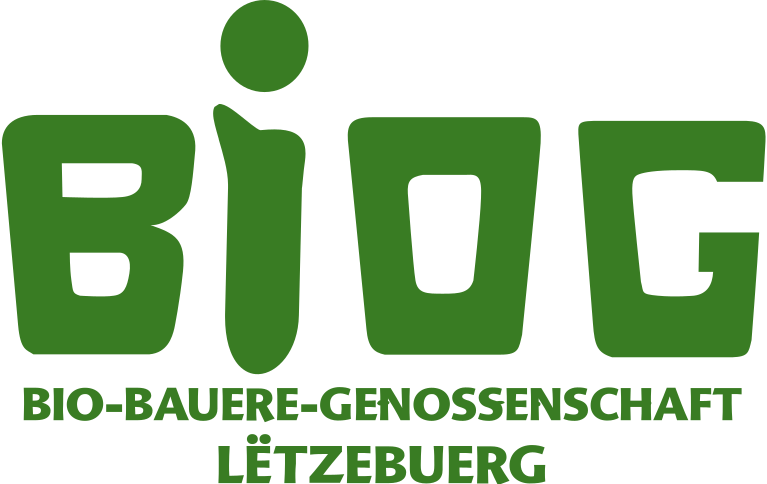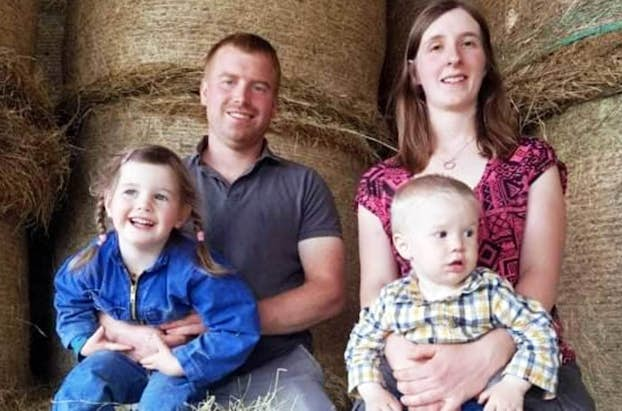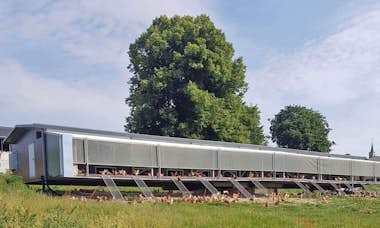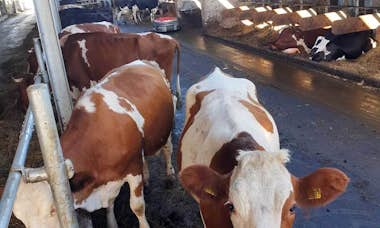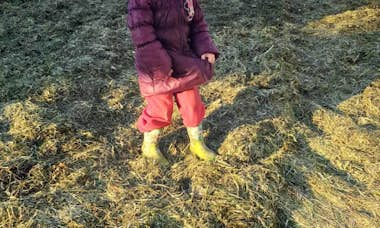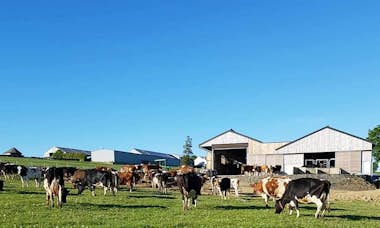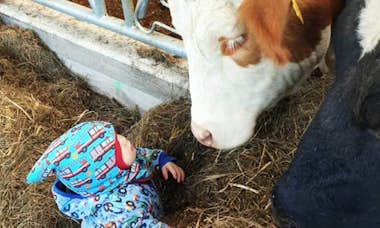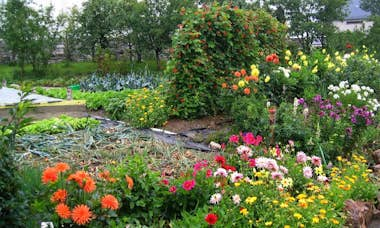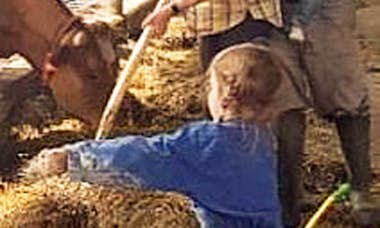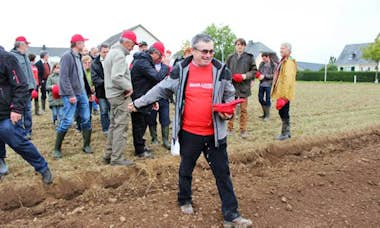- Member ofVereenegung fir Bio-Landwirtschaft Lëtzebuerg asbl.
André Dormans
Multi-generation farm
Pierre Dormans-Reiff converted his farm to organic in 2001. He had been interested in organic farming for quite some time and was inspired by other organic farmers. At that time, the so-called BSE crisis was prevalent in conventional agriculture, which completely convinced him to manage his farm organically. From now on, he wanted to work hand in hand with nature.
In 2018, André took over his parents' farm. He and his wife work together on the multi-generation farm and are actively supported by his parents. Both think it is important that children have a good relationship with agriculture. Therefore, their children spend as much time as possible on the farm.
"It's not the farm that makes up the farmer, but the contentment, working together and the closeness to nature."
Perfectly adapted farm for the animal welfare
The family is always open to new things and finds it important to exchange ideas with other farmers. Animal welfare is very important to them. That is why a new dairy cow barn was inaugurated in 2019, which is also suitable for dairy cattle with horns. Family Dormans’ herd consists partly of cows with and partly of cows without horns. Most of the animals are crosses between Holstein and Fleckvieh. In the future, the aim is a pure Fleckvieh breeding, which allows a simplified herd management.
The animals have deep fly boxes at their disposal. There is always the possibility to escape to the front, which reduces the stress for the animals. The cows are milked in a gentle way with two milking robots. The walkways are partly flat and partly slatted floor. They are regularly cleaned with a manure sucking robot.
During the grazing season, the animals have access to the short grass pasture. There are several hedges and trees that protect the animals from the sun. Outside the grazing season, the cows are fed with the farm's own silo and grain. In the milking robots, the cows feed on organic certified concentrated feed, so that the animals like to visit them. Alumina and seaweed salt are two natural products that are at the cows’ free disposal.
Since 2019, the Dormans’ have been a member of an aromatherapy group in which several farms meet to exchange ideas. They find the use of alternatives to traditional veterinary medicine on their farm important.
Second mainstay: organic eggs
Apart from the dairy cows and two dwarf goats, 4500 laying hens live here, divided into a permanent and a mobile stable. André always liked the idea of keeping laying hens. When his wife wanted to join the company, the decision was made. During this time, the Bio-Ovo cooperative was urgently looking for egg suppliers. An empty warehouse was suitable for a quick start, so it was converted into a laying hen house. The mobile barn has the advantage that the hens have a changing pasture and therefore the floor load is lower. The chickens are fed with regional fodder and farm-own grain.
The farmer uses clover grass in his crop rotation for two years and then five different grain varieties for three to five years. Of these, he supplies wheat and spelt to the BIOG association, a part is delivered to LSG and the rest is used as animal feed.
André Dormans is a member of the BIOG cooperative and a shareholder of the BIOG dairy, which collects, processes and markets his milk.
